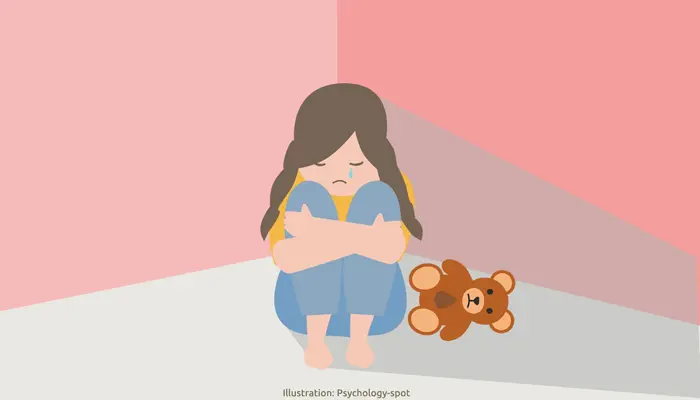
The death of a loved one does not take into account ages or social classes. For this reason, many children suffer the loss of their grandparents, uncles or other close relatives. In fact, I believe that there is no psychologist who has not been asked at least on one occasion to “break the news of the child’s death.” Parents are usually too afraid to do it themselves and think that having a psychologist do it will improve the way the child copes with it.
At this point, it is important that we are aware that, no matter what we do, we cannot avoid the pain that the child will experience, but we can help him or her experience grief in a healthier way. For anyone, the loss of a loved one is already a difficult situation, for children it is much more so.
You must keep in mind that children are dependent on adults, so the loss of a close figure also implies in a certain way the absence of a source of protection, security and affection. Therefore, to face childhood grief it is essential that children feel safe and loved.
How can we help a child understand death?
Until the age of 5, the concept of death is very limited. It is at this age that the child begins to develop a clear difference between temporary separation and definitive separation. Only at the age of 9 do they acquire the notions of irreversibility and insensitivity (post-mortem).
That is why it is essential that the child understands what death is. He needs to have concise, understandable and age-appropriate information. The problem is that many times parents are afraid to explain it to them because they don’t want to hurt them. To make sure that the information you give is understandable, you should start from what the child already knows, perhaps giving an example of a pet that has died. After you explain, ask him if he has any questions. In a general sense, it should be clear that death is an irreversible, inevitable and universal event.
Obviously, children, like adults, have different ways of expressing the emotions derived from a loss. They can express sadness by crying, express anger through inappropriate behaviors such as fights or bad responses, and they can even somatize emotions by presenting physical pain. It is also not unusual for there to be a setback in the learning acquired, such as the child urinating the bed again.
Along with pain, children can also express other emotions such as fear that they or other loved ones may die or become ill. In the same way, they may experience feelings of guilt for inappropriate behavior or limited displays of affection that they had with the person before they died. In this sense, it is important to detect the symptoms of guilt and talk to them to make them see that it was an event beyond their control.
It is also important that everything is handled naturally. Spaces to talk about the person who has died, remember them or even mourn them help the child. Of course, when the child does not want to express what he feels, you should not pressure him, he will do it when he is ready.
Attend the funeral?
Some adults think that attending the funeral will be too “hard” for the child. However, it is important to give him the opportunity to say goodbye. Let us remember that what causes pain is not the funeral itself but the loss of the person.
The funeral and all the rituals that accompany it have the function of allowing those close to the deceased to share the grief and say goodbye to the loved one. Thus, sometimes, with the aim of avoiding grief, we will only be helping to postpone the period of childhood mourning.
However, it is important that you prepare him for what he will see by explaining what it is and how people will react. This will allow them to have greater control of the situation and therefore feel safer.
Once the funeral is over, it is important that the child understands that they must return to their daily routine. That’s why it’s not a good idea to ban music or cartoons.
When should you go to the psychologist?
If a loved one dies, would you prefer a close friend or a psychologist to tell you? Who would you feel most comfortable with? If you follow all the previous recommendations, it will be much better for the news of the death to be given by a close relative and not by a psychologist who is completely unrelated to the child. Remember that the psychologist cannot avoid pain but only explain some concepts.
Regarding children’s grief, a professional should be consulted if the child exhibits any of these symptoms:
– Deep sadness that limits his interest in daily activities
– Difficulties sleeping, eating or fear of being alone
– Regression to behaviors typical of a younger child
– Imitation of the deceased person
– Desires to go with the deceased person
– Loss of interest in friends or the game
– Refusal to attend school and problems in school performance




Leave a Reply